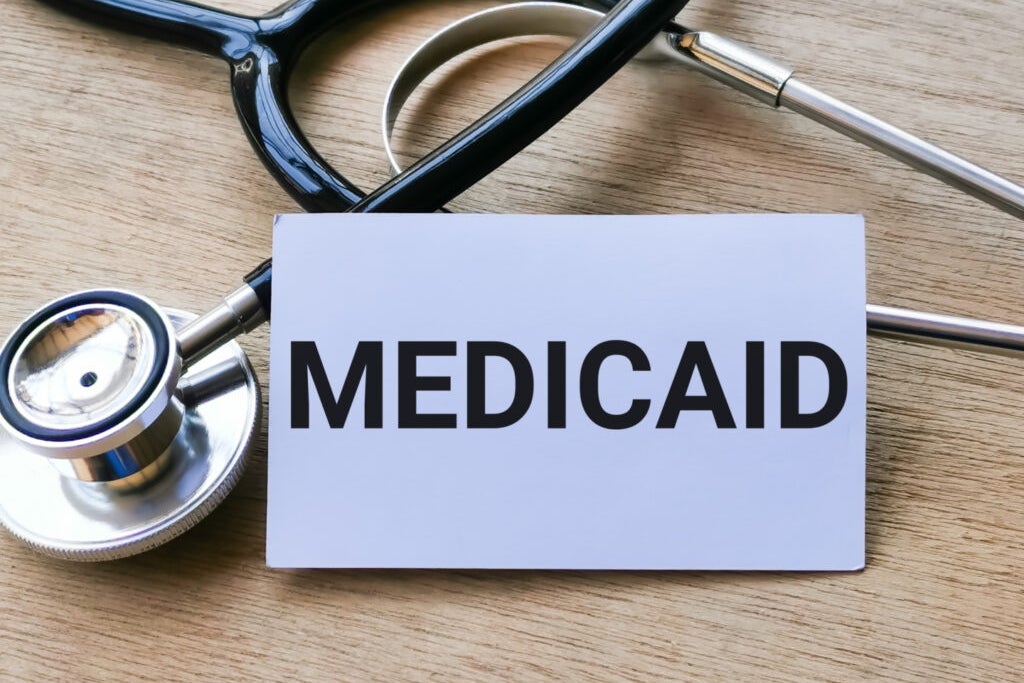Will Big Pharma Emerge Victorious? Analyzing Goldman Sachs Insights on 340B and Medicaid Changes
As the pharmaceutical landscape continues to evolve, major pharmaceutical companies are left grappling with new regulations and changing market dynamics. Insights from Goldman Sachs regarding the impending changes to the 340B Drug Pricing Program and Medicaid present a significant point of discussion. These changes could have profound implications for industry giants such as AbbVie and Bristol-Myers Squibb, raising key questions about the future of drug pricing and access.
The 340B Drug Pricing Program: A Brief Overview
The 340B Drug Pricing Program was established in 1992 to allow eligible health care organizations to purchase outpatient drugs at discounted prices. This initiative aims to enable these organizations, often serving low-income and uninsured patients, to stretch scarce federal resources. However, the program has come under scrutiny for its effectiveness and the potential for misuse.
Goldman Sachs recently highlighted that changes to this program could influence the financial landscape for pharmaceutical companies. With ongoing legislative and regulatory scrutiny, understanding the 340B program’s implications is crucial for investors and stakeholders alike.
Impact of Medicaid Changes on Pharmaceutical Companies
Medicaid serves as a vital safety net for millions of Americans, providing essential health care services to low-income individuals. However, proposed changes to Medicaid reimbursement rates and eligibility criteria could disrupt the current balance between patient access and pharmaceutical profitability. According to Goldman Sachs, these changes could adversely affect major players in the pharmaceutical industry.
- Reduced Reimbursement Rates: Lower reimbursement rates may affect the willingness of healthcare providers to prescribe certain medications, which could lead to decreased drug sales for companies like AbbVie and Bristol-Myers Squibb.
- Increased Competition: As Medicaid expands access to generic drugs, branded pharmaceutical companies may face stiffer competition, impacting their bottom line.
- Changes in Patient Demographics: Alterations in eligibility could result in shifting patient populations, impacting drug utilization patterns and demand.
Goldman Sachs Insights: What to Expect
Goldman Sachs has provided a thorough analysis of how recent policy changes could impact the pharmaceutical sector. Here are some key insights:
1. Financial Performance of Major Players
The investment bank expects that the changes in the 340B and Medicaid programs may lead to a decline in revenues for companies like AbbVie and Bristol-Myers Squibb. With a significant portion of their sales coming from drugs dispensed in outpatient settings, any reduction in the availability or affordability of these medications could have a ripple effect on their financial health.
2. Drug Pricing Pressures
Goldman Sachs anticipates that pressures on drug pricing will intensify as policymakers seek to control healthcare costs. The proposed changes to Medicaid could push more patients toward lower-cost alternatives, thereby squeezing the market for high-cost specialty drugs.
3. Strategic Responses from Pharmaceutical Companies
In light of these challenges, pharmaceutical companies may need to rethink their pricing strategies and market approaches. This could include:
- Enhanced Value Proposition: Pharmaceutical firms may need to demonstrate the value of their medications in terms of patient outcomes and overall healthcare costs.
- Collaborations with Healthcare Providers: Forming partnerships with hospitals and clinics could help ensure that their products remain accessible and are effectively integrated into patient care.
- Investing in Generics: Some companies may choose to diversify their portfolios by investing in generic drugs to capture a larger share of the market.
The Future of Drug Access and Pricing
The changes suggested by Goldman Sachs raise broader questions about the future of drug access and pricing in the United States. Will pharmaceutical companies be able to navigate these challenges successfully, or will they face significant headwinds? Here are a few perspectives on what the future may hold:
1. Increased Regulatory Scrutiny
As policymakers focus on lowering drug prices, pharmaceutical companies can expect heightened scrutiny regarding pricing practices. This regulatory environment will likely require companies to be transparent about their pricing strategies and the rationale behind them.
2. Innovations in Drug Development
To maintain profitability in a challenging market, pharmaceutical companies may need to invest significantly in research and development. Innovations in drug development, including personalized medicine and biologics, could provide new avenues for growth despite existing pressures.
3. Focus on Health Equity
With the ongoing dialogue about health equity, pharmaceutical companies may need to reevaluate their approaches to drug pricing. Emphasizing affordability and access for underserved populations could not only enhance their public image but also align with broader societal goals.
Conclusion: Will Big Pharma Emerge Victorious?
The insights from Goldman Sachs regarding potential changes to the 340B Drug Pricing Program and Medicaid paint a complex picture for Big Pharma. While companies like AbbVie and Bristol-Myers Squibb possess the resources and expertise to adapt to evolving circumstances, the road ahead is fraught with challenges. The intersection of regulatory changes, pricing pressures, and the demand for health equity will undoubtedly shape the pharmaceutical landscape in the coming years.
Ultimately, the question of whether Big Pharma will emerge victorious hinges on its ability to innovate, adapt, and address the pressing concerns of drug access and affordability. As we navigate these changes, stakeholders across the healthcare spectrum will need to collaborate to ensure that patients receive the medications they need without compromising the sustainability of the pharmaceutical industry.
As this narrative unfolds, watching how major pharmaceutical firms respond to these changes will be crucial for understanding the future of drug pricing and access in the United States.
See more WebMD Network



